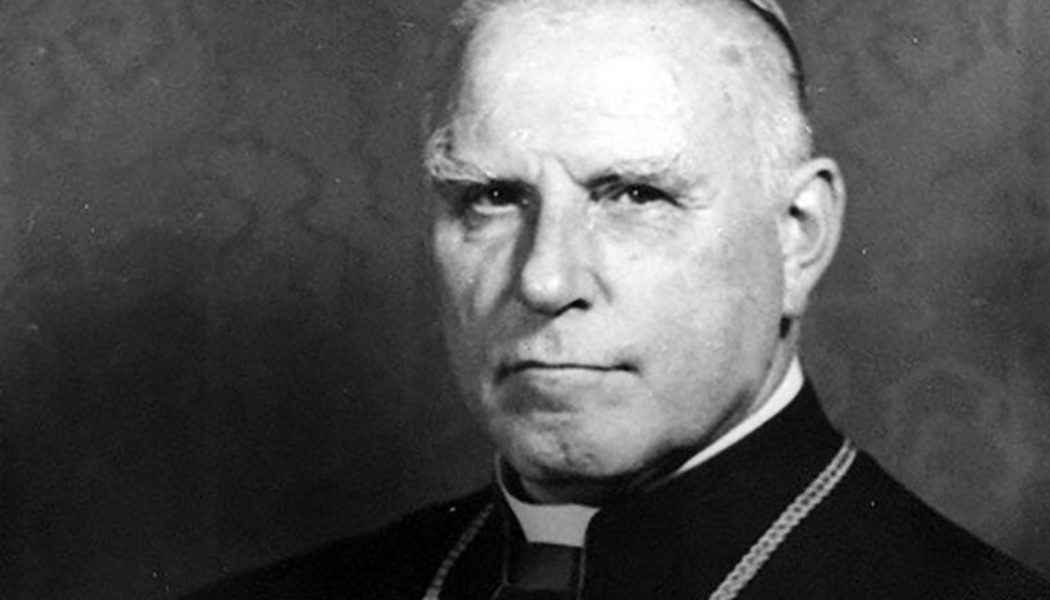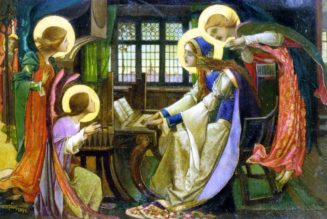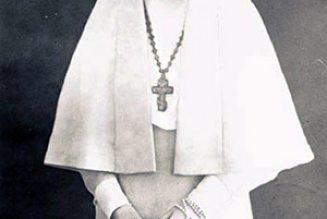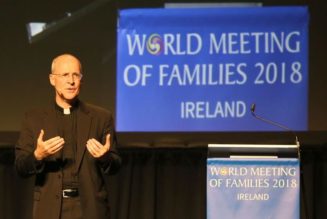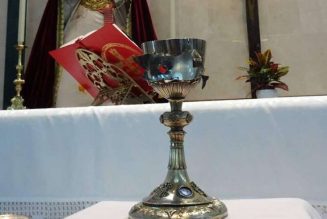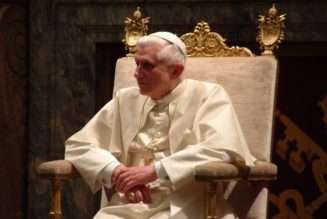
Until the issue of Holy Communion for pro-abortion politicians gets resolved, the faithful are left to wonder if the Church is entirely serious about upholding the truth of her teaching.
Imagine a time traveler from another century, who, as fate would have it, finds himself suddenly parked in the middle of almost any state in the country. Then tell him it’s been 40 days since Easter Sunday, which makes it Ascension Thursday, faith’s greatest festival of the future. Chances are, if he’s Catholic, he’ll want to know where the nearest church is, so he can get to Mass.
However, here’s where things get a bit sticky because, depending on which state he’s fallen into, there might not even be a Mass. In fact, in all but a very few places — six to be exact, i.e., Boston, Hartford, New York, Newark, Omaha and Philadelphia — he’ll have to wait until Sunday to observe the Solemnity. So, the path opened to us by Our Savior’s return to the Father, will have to wait a few more days before most of us can actually begin the journey. Leaving our poor time-traveler perhaps with a serious case of scruples, since missing a Holy Day of Obligation amounts to mortal sin in any place.
Under the circumstances, might it not make more sense if matters were better regulated? If the bishops, for example, were to come together and impose a bit of liturgical order; simply decide, as it were, which arrangement to follow? Otherwise, the faithful are being asked to countenance an absurdity, which is to reduce sin to an exercise in geography.
But it gets worse. A lot worse. Because, while confusion about which calendar date to mark for a major feast may not exactly threaten the unity of faith, disagreements about who may be eligible to receive Holy Communion certainly do. And until that particular issue gets resolved, the faithful are left to wonder if the Church is entirely serious about upholding the truth of her teaching. I mean, does she really believe in the sacredness of human life? To such an extent, that is, that those who refuse in the most obdurate and public way to protect life, disdaining even to defend helpless babies in the womb, ought not to present themselves to receive the Lord and Giver of Life, unless they have first made an honest confession of their sin?
Are the bishops on board with this? One would certainly hope so. Are they not Catholics? Certainly they have all gone on record, repeatedly, in giving it “preeminent priority” among all the issues that touch upon human life. Thus, it would seem, not a single bishop disputes the fact that abortion represents a direct attack upon life, indeed, the most innocent of all. Or that, in the absence of securing legal protection for unborn life, no other right is safe.
So, what’s the problem? Why haven’t all the bishops come forward, then, to approve Archbishop’s Salvatore Cordileone’s decision forbidding House Speaker Nancy Pelosi to receive the Eucharist? Given the fact of her “obstinately persevering in manifest sin,” should they not all be lining up to support his decision, to extend its application to their own dioceses? And not just for the sake of unborn children, by the way, whose destruction she has spent her entire congressional life promoting. But for the sake of her own soul, which stands in far greater danger. Greater even, alas, than she may know.
Because, until they do, Catholics are being asked to believe that profaning the Eucharist is perfectly fine in some places, but not so in others. Nancy Pelosi may be prevented from committing sacrilege in San Francisco, but not in Washington, D.C., where 60 pro-abortion House Democrats told Cardinal Wilton Gregory and other bishops last year that “the weaponization of the Eucharist to Democratic lawmakers for their support of a woman’s safe and legal access to abortion is contradictory.”
Meanwhile, on the other side of the Potomac there’s the bishop of Arlington, who has just announced that Archbishop Cordileone’s ban will be honored in his diocese. This is surely ludicrous — complicity in the mass killing of children has now become a function of which side of the river your church happens to be located on.
More to the point, it is scandalous. Concerning which the Catechism of the Catholic Church, a document to which even bishops are bound, is perfectly clear, calling it “an attitude or behavior which leads another to do evil” (2284). Do the bishops actually want to encourage evil? Because by their failure to unite, to reach across the episcopal aisle to join hands with one of their own, they give the impression that in order to get along they will go along. That the scandal of allowing those whose rejection of the Church’s clear teaching on the sanctity of life, places them in direct contradiction to communion with the Body of Christ — which communion they will yet insist upon sharing before the altar of God — seems not to bother them at all.
What are they so afraid of?
Join Our Telegram Group : Salvation & Prosperity
